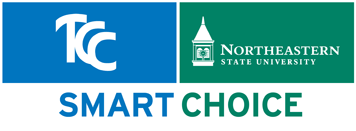Chemistry - TCC to NSUBA
NOTICE
Smart Choice agreements are being updated at this time. Please check with an advisor as to current program offerings.
TCC A.S. Chemistry to NSU B.S. Chemistry Professional Option
TCC A.S. Chemistry to NSU B.S. Chemistry Biochemistry Option
TCC A.S. Chemistry to NSU B.S. Chemistry Environmental Option
TCC A.S. Chemistry to NSU B.S. Chemistry Chemistry Education Option
Chemistry
Plan of Study
TCC Associate of Science in Chemistry
NSU Bachelor of Science in Chemistry
Chemistry is the central science and impacts on all facets of our lives. An understanding of chemistry is necessary to all other sciences from astronomy to zoology. Many materials are made available only through chemistry and we all experience chemical reactions continuously, whether it be breathing or baking a cake, driving a car or listening to a battery driven mp3 player. Chemistry is concerned with all aspects of molecules, their physical and chemical properties, their composition and structure, their preparation and use. Learning chemistry gives you a unique and powerful perspective on understanding the world around you.
The rigorous study and skills you learn earning a chemistry degree will serve you well. Chemists can find rewarding careers in the chemical, pharmaceutical, food, paper, mining, petroleum, rubber, alcoholic beverage, cosmetic, and textile industries, just to name a few. You might also work in government or university laboratories, environmental assessment, forensics, or patent law. Your degree could also lead to management, sales, or quality control positions in which a background in chemistry is necessary. With an education degree, you may also consider teaching high school chemistry. Furthermore, the chemistry program prepares students for pursuing advanced degrees (chemistry, chemical engineering, forensics, etc.) or in entering health-related professional schools (medical, pharmacy, dental, optometry, chiropractic, etc.).
Transferring to NSU is a seamless process. Although you can transfer to NSU at any time in your academic career, the smoothest transition occurs if you have earned or will earn an AA or AS from TCC. This milestone will also meet your general education requirements at NSU (unless it is a specific NSU requirement for you to graduate). Within your AA or AS, make sure you complete the following classes because they are proficiency requirements for NSU: ENGL 1113 and ENGL 1213 with a grade of C or better, and meet computer proficiency.
What it takes to complete a BS from NSU. If you don't complete your AA or AS at TCC, you will need to meet NSU's specific general education requirements. You must have at least 124 hours completed to earn a BS. Of those hours, 60 must be from a university (4 year school), 40 must be junior and senior (3000/4000) level, and half of the hours in your major must be from NSU. You must also be both English and computer proficient. This means that you must pass Composition I & II with a C or better and pass the designated computer proficiency class if needed. Therefore, when you transfer to NSU, you will likely need to complete around 60 more hours in order to earn your BS.
How do my TCC classes transfer to NSU? Every class that you have taken at TCC will transfer to NSU. Each class will count in one of the following categories that make up a bachelor's degree: general education, major, minor, or free elective. You probably already know about general education and major classes but minors and free electives are unique to bachelor's degrees. A minor is 18 hours from an academic area of your choice and it is designed to complement your major. Your advisor will help you determine your minor and the classes you will take to complete it. Many chemistry majors choose to minor in mathematics due to the prerequisites required for advanced chemistry courses. Free electives are extremely flexible and can be selected from any academic area. They allow you to explore your academic interests outside of your major while counting toward the 124 hours you need to graduate. Most degree programs at NSU allow for some free electives. If you completed a class at TCC that does not meet one of the other specific requirements, it will count in this category, up to the first 64 hours. If you have completed more than 64 hours at the associate degree level, all courses will transfer to NSU, but only 64 hours will apply to your degree. This is because you must have 60 hours from a four-year institution to meet state requirements for graduation with a baccalaureate degree.
When can you start taking NSU classes? You can begin taking classes at NSU while you are completing your AA or AS at TCC. This is called dual enrollment, many students do this each semester. Consult an NSU academic advisor and a financial aid counselor to see how dual enrollment can work for you.
NOTE: Chemistry majors are required to earn the grade of C or higher in all required chemistry courses.
Contact Transfer Student Services to make your transition to NSU as smooth and seamless as possible.
For more information view Course Sequence.

